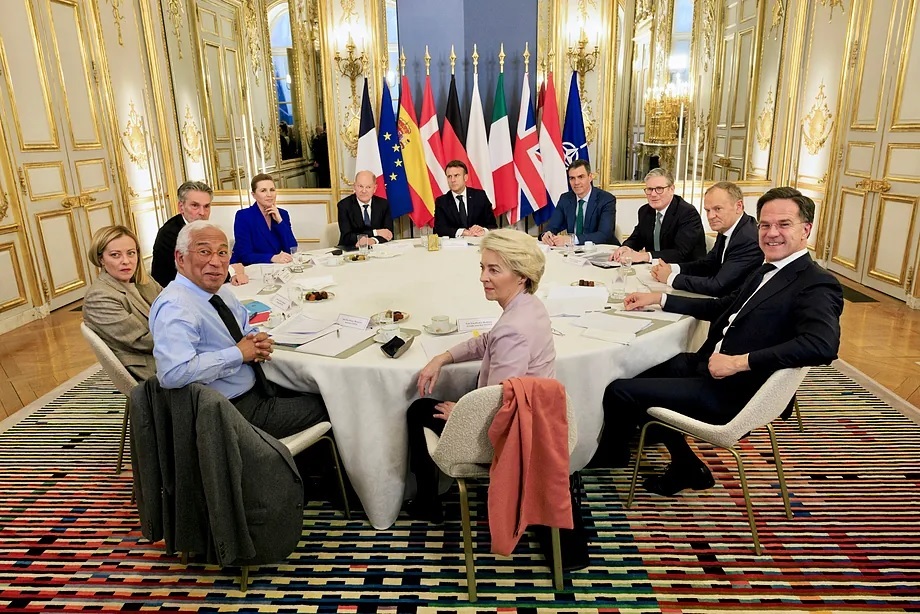Since the war in Ukraine began, Spain has made efforts to compensate for the lack of Defense investment with other contributions to NATO, positioning itself as a reliable partner. Sánchez increased the budget in the portfolio of Margarita Robles by 26% in the last budgets approved. This gesture aimed to show allies that Spain intends to meet deadlines and reach the 2% Defense spending target by 2029, as promised on several occasions. However, the return of Donald Trump to the U.S. presidency, changes in EU leadership with Ursula von der Leyen at the helm, and the appointment of Mark Rutte as NATO Secretary-General have accelerated the deadlines.
Spain's commitment to supporting Ukraine seems to matter less now. The significant deployment of Armed Forces personnel on the Eastern front of NATO, where Spain even leads a multinational brigade, also does not carry much weight. Now, involvement is measured in millions of euros. The Government knows that Spain falls short. This is because the President lacks the majority to pass budgets where partners refuse to increase Defense spending. As a result, the Foreign Affairs, Defense, and Economy officials - responsible for engaging with NATO and EU authorities - are changing their discourse.
Even the President of the Government himself. Sánchez was one of the guests invited by Macron to the informal summit held in Paris to discuss peace in Ukraine. After the meeting, the Government leader acknowledged feeling that the EU's political project is "threatened" by the conflict. While Von der Leyen stated that Europe needs to have a "sense of urgency" and made a clear call to increase Defense spending, Sánchez reiterated his commitment to reaching 2% but called for "flexibility in some rules to finance our capabilities." The President pointed out, "Europe must define its security and defense as a public good and needs to establish joint mechanisms to finance our Defense capabilities."
In the morning, José Manuel Albares went further by admitting that achieving the increases is "unthinkable." He reiterated Spain's willingness to reach 2% by 2029, but this comes after Donald Trump mentioned 5%, and it is expected that at the next NATO Summit, allies will be asked to increase their investment efforts.
"It is legitimate to reflect and propose a new approach to the joint spending that we Europeans must make in security matters from Brussels," the Minister stated. Spain has been advocating for all 27 countries to collectively contribute to Defense spending for some time. In fact, on September 12, Robert de Groot, Vice President of the European Investment Bank, visited Madrid and met with Margarita Robles to discuss the possibility of starting to finance Defense spending. Five months later, Albares admitted that "it is unthinkable in the short term for any country to achieve the increases being indicated."
At the same time in Brussels, Economy Minister Carlos Cuerpo mentioned that "there is room at the European level for the EU to increase its debt" before participating in the Eurogroup. He emphasized the need to consider instruments or capabilities available to expand financing possibilities. He also highlighted the importance of "using the pool of money available through the European Stability Mechanism to provide guarantees for Defense financing."
Hence, the Government's strategy is clear: for Europe to finance the increased Defense spending. The measures implemented should not impact Spain's deficit, as would likely happen with the three options proposed by Cuerpo. This approach would also allow the Government to bypass the expected veto from the Sumar part of the Government, which is strongly against raising Defense investment. This way, the Government would not have to reallocate funds initially intended for social spending to Defense, as reported by Daniel Viaña.
"We are increasing Defense spending, but we must acknowledge that we are in a new situation, with a new approach from the U.S. administration in the transatlantic relationship and Euro-Atlantic security," Albares reiterated yesterday.
Another scenario complicating the Government is the potential deployment of troops to Ukraine, on which they refrain from commenting, with the President stating, "we are still at war." Robles mentioned that "Spain would consider this issue because what matters is our commitment to peace," while Albares stated that they would need to assess "for what mission, under what flag, and with what command." Participating in a new mission would require Government approval in Congress, potentially highlighting differences with its partners.
